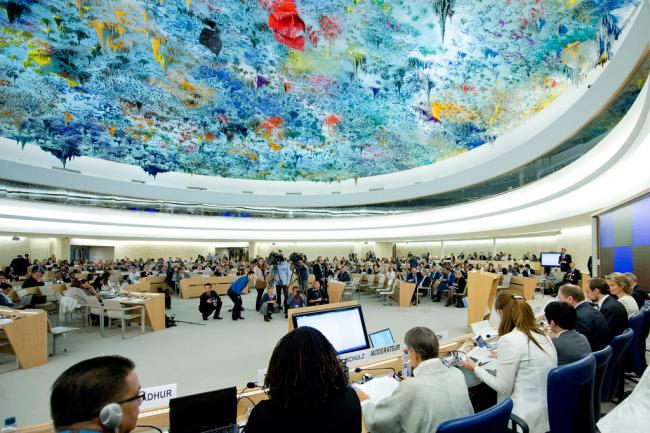
UN rights experts call on Bangladesh to annul death sentence against opposition member
“International law, accepted as binding by Bangladesh, provides that capital punishment may only be imposed following trials that comply with the most stringent requirements of fair trial and due process, or could otherwise be considered an arbitrary execution,” they said in a news release issued yesterday by the Office of the United Nations High Commissioner for Human Rights (OHCHR).
The experts' request comes as the Supreme Court prepares to review Ali's case on 24 August.
He was sentenced to death in 2014 by the Bangladesh International Crimes Tribunal (ICT) for crimes against humanity committed during the 1971 Bangladesh Independence War. The decision was confirmed by the Appellate Division of the Supreme Court on 8 March 2016.
“The death penalty is the most severe form of punishment,” they stressed. “In light of its irreversibility, every measure must be taken to ensure that all the defendants before the International Crimes Tribunal, including the Appellate Division, have received a fair trial.”
In the news release, the experts recalled that the Working Group on Arbitrary Detention found in 2012 that Ali's deprivation of liberty was arbitrary and in breach of articles 9 of the Universal Declaration of Human Rights and the International Covenant on Civil and Political Rights.
“We regret the Government's non-compliance with the expert group's recommendations to remedy the situation of Ali, and call upon the Bangladeshi authorities to respect their international obligations,” they added.
The UN human rights experts also expressed alarm at reports that Ali's son and part of his legal defence team, Mir Ahmed Bin Quasem, was abducted from his home on 9 August by Bangladeshi security forces, two weeks before his father review hearing.
“We understand that no information has been given on where he is being held, by whom or under what suspicion or charge. We urge the authorities to immediately disclose the whereabouts of Quasem,” they said.
The news release further added that the UN human rights experts have on several occasions expressed alarm regarding serious violations of fair trial and due process guarantees in the judicial proceedings before the ICT that were reported to them.
The ICT is a special domestic court with the jurisdiction to try and punish any person accused of committing atrocities, including genocide, war crimes and crimes against humanity in the country. It has sentenced 17 individuals to death for crimes committed during the Independence war.
In the past three years, five of those convicted by the ICT have been executed.
The experts voicing their concern include:
Agnes Callamard, Special Rapporteur on extrajudicial, summary or arbitrary executions
Mónica Pinto, Special Rapporteur on the independence of judges and lawyers
Juan E. Méndez, Special Rapporteur on torture and other cruel, inhuman or degrading treatment or punishment
Sètondji Roland Adjovi, current chairperson of the Working Group on Arbitrary Detention
Working Group on Enforced or Involuntary Disappearances
Special Rapporteurs and independent experts are appointed by the Geneva-based UN Human Rights Council to examine and report back on a specific human rights theme or a country situation. The positions are honorary and the experts are not UN staff, nor are they paid for their work.
UN Photo/Jean-Marc Ferré
Source: www.justearthnews.com
Support Our Journalism
We cannot do without you.. your contribution supports unbiased journalism
IBNS is not driven by any ism- not wokeism, not racism, not skewed secularism, not hyper right-wing or left liberal ideals, nor by any hardline religious beliefs or hyper nationalism. We want to serve you good old objective news, as they are. We do not judge or preach. We let people decide for themselves. We only try to present factual and well-sourced news.







